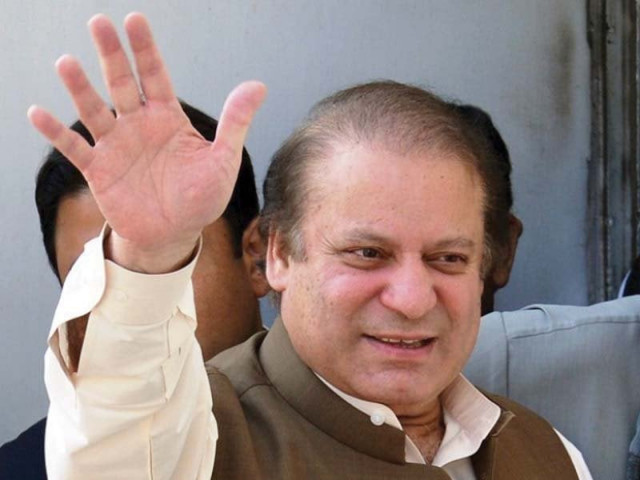PML-N’s performance in two years – a blend of effort and luck
Government undertook structural reforms but fell short on human development

Certain factors are completely out of govt’s control as oil prices have seen the sharpest fall in decades, lowering the import bill, stabilising rupee and reducing inflation. PHOTO: FILE
Certain factors in the positive outlook are completely out of the government’s control, for instance, oil prices have seen the sharpest fall in decades, lowering Pakistan’s import bill significantly, stabilising the rupee and reducing inflation.
Yet there are areas where government’s policies are getting recognition as the privatisation drive and cut in subsidies are important steps in the long needed reforms.
Read: PML-N’s first year: Governance ratings up slightly, says PILDAT
However, there are serious doubts over the government’s progress in human development.
Education
The total public sector enrolment, taking into account all stages of education, fell 2% in 2013-14 compared to the previous financial year. Although pre-primary enrolment increased 6%, high school enrolment fell 30%, depicting a decline of half a million children. The private sector high school enrolment only rose around 50,000.
Pakistan’s population grew eight million between 2011 and 2014, making the fall in enrolment even more serious. These statistics coupled with plans to tax private school fees appear to cast doubts over the government’s priorities and seriousness in addressing the country’s education problems.
Comparing provinces, the total enrolment fell in Punjab and Sindh by 4% and 5% respectively, whereas it increased 3% in Khyber-Pakhtunkhwa (K-P) and 1% in Balochistan.
Government finances
Pakistan’s budget deficit narrowed from 8.2% to 5.5% in FY14. This was partially due to increase in non-tax revenues such as foreign aid or proceeds of 3G and 4G auction, which the government cannot take credit for, but there were some areas where the government did make progress.
Subsidies fell 16.8%, which resulted in increased electricity tariffs. This is an unpopular decision which appears to hurt the population, but electricity subsidies actually help the rich more as they use more electricity. The World Bank argues that the richest 20% receive 40% of electricity subsidies in Pakistan. Moreover, the government protected the poorest by exempting those using 50 kilowatt hours per month or less from price increases.
Arguably, the money used in subsidies is better spent on improving electricity distribution and increasing supply.
Read: G-b elections: PML-N ahead of rivals with 11 seats
Another important structural reform is the government’s privatisation drive that includes PIA, OGDC and Habib Bank, which could raise up to $2 billion. This should, in theory, deliver efficiencies and reduce damaging political interference. Now despite these positive steps and a fall in the import bill, foreign debt has increased, albeit marginally by 0.2% of gross domestic product (GDP).
Energy
There has been progress in increasing electricity supply and if projects are completed as planned and on schedule, they will further increase supply by 10,000 megawatts by 2017, almost doubling it.
However, the distribution and utilisation of existing supply seems woefully neglected.
Pakistan utilises only 53% of its existing capacity and the government has not done enough to address this problem. Similarly, 40% of electricity production is wasted in line losses and electricity theft, again an issue the government has not been able to tackle so far. In 2011, the line losses used to be only 17%.
Tax collection
Tax collection grew 16.7%, this is progress but there is a lot more that can be done as 98.5% of the country’s population still does not pay any income tax. The increase has been through indirect means such as increase in tax on petroleum products (due to the fall in prices) and imports which does not address the income tax issue.
The government has started addressing the age-old problem of Statutory Regulatory Orders (SROs) which have plagued the tax system with loopholes for years.
SROs allow the FBR to bypass parliament and give specific tax exemptions to certain sectors. They lack transparency, incentivise corruption and in some cases discriminate against small and medium-sized businesses.
Some SROs have already been removed which the IMF expects will increase tax collection by 0.3% of GDP. The government announced plans to curb these further and also withdraw the FBR’s powers to issue more SROs, which will certainly be a positive step.
The government should take credit for the structural reforms implemented and planned, particularly cutting subsidies, privatisation and reforming SROs. But it has fallen short on human development and this cannot be forgiven.
Half a million fewer children in public high schools is not something the government can sweep under the carpet.
Similarly, increasing electricity supply through projects without improving efficiency in the existing system will not solve the energy crisis. The writer is a London School of Economics graduate and is currently working as a banker in the UK
Published in The Express Tribune, June 22nd, 2015.
Like Business on Facebook, follow @TribuneBiz on Twitter to stay informed and join in the conversation.



















COMMENTS
Comments are moderated and generally will be posted if they are on-topic and not abusive.
For more information, please see our Comments FAQ